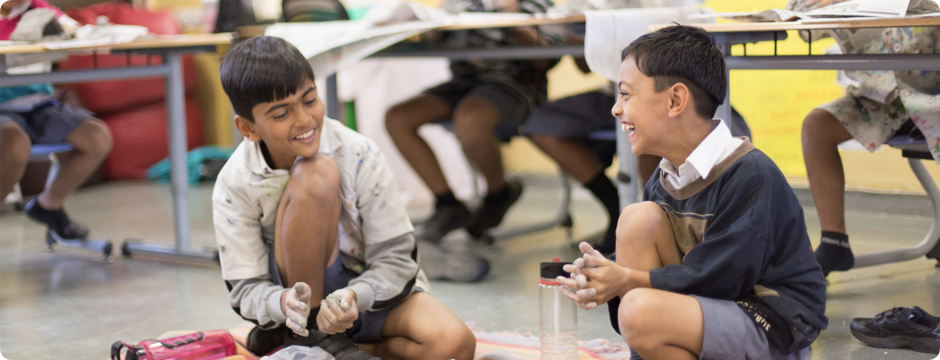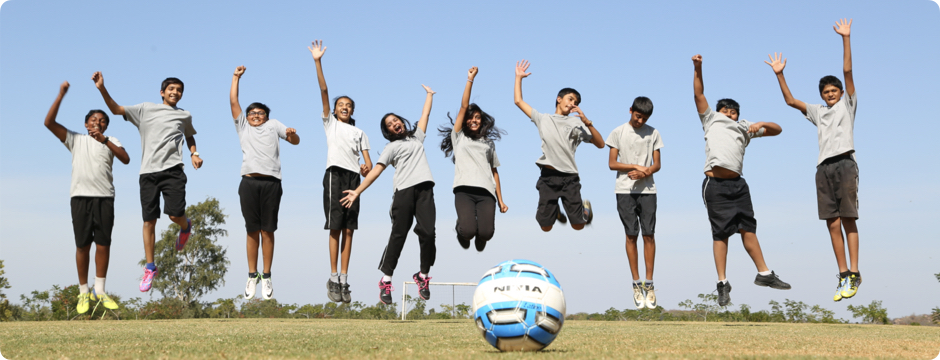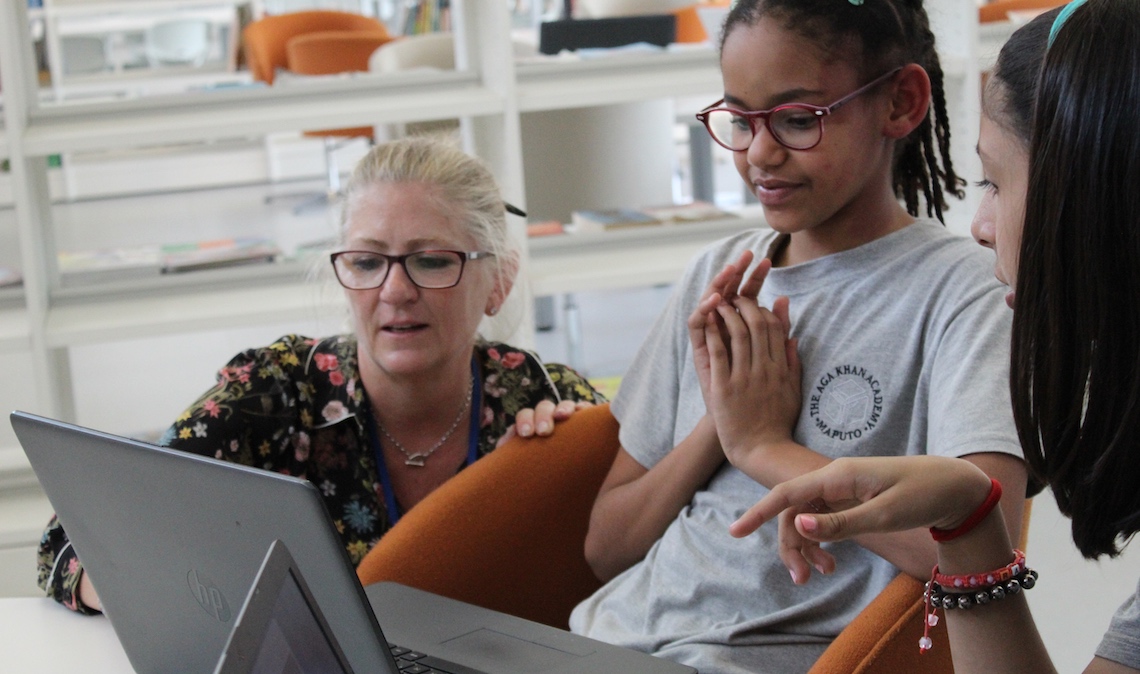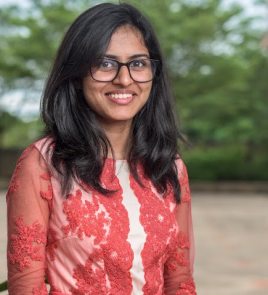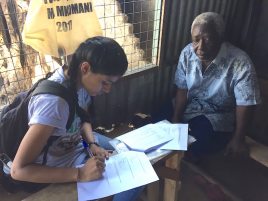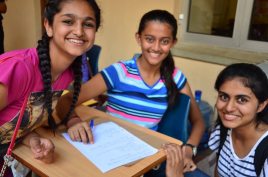Saturday School - 27 October 2018
A math mela & parent information session in the PYP. Grades 6-10 are going on field trips to the zoo, planetorium and meteorological department. DP students on campus for CAS, Extended Essay & TOK submissions.
Winter break: Monday 17th December '18 - Friday 4th January '19
We wish our students & faculty a restorative vacation, and a festive holiday season! Admissions office will be closed from 25th - 30th Dec 2018 & on 1st Jan 2019.
University of Cambridge (UK) visit - Thursday 21st February
Ranked the best European university in the QS rankings 2018. Presentation by university representative from 2:30-3:15pm at Lecture Theatre. All students & parents of grades 10, 11 & 12 welcome.
49th annual Earth Day - 22nd April 2019
Students of the MYP spared no punches in this morning’s Earth Day celebrations, setting the tone for a day when we reflect on our choices, their impact on the environment, and the actions we can take for a better tomorrow. Detailed report coming soon!
Diploma Programme end-of-year examinations
Grade 11 exams: Monday 22nd April – Wednesday 1st May. Grade 12 International Baccalaureate final exams: Monday 6th – Friday 24th May 2019. All the best!
Aga Khan Academy opens doors to students from Bangladesh
Rebecca Nichols: Seeing Endless Possibilities for the Future of AKA Maputo
Engaging Students to Become Stake-Holders in the Future of the Academy
For the Middle Years Programme (MYP) Coordinator, Rebecca Nichols, the sky is the limit when envisaging the future of the Aga Khan Academy in Maputo, Mozambique. More importantly, in her eyes, how the Academy keeps growing, shaping and expanding its role in the country and beyond must lie in the hands of students.
“I would like to see our students take responsibility for what our school should become,” she states with excitement, squarely placing the emphasis on student-centred leadership. “I look forward to hearing their ideas for new initiatives, and I look forward to AKA Maputo becoming a school on the African continent from which leaders emerge,” she adds with resolute clarity.
Listening to the details of Rebecca’s background, education, and experience is highly entrancing. Born in the United Kingdom, she spent the early years of her life in Kenya before moving to the Ashanti Goldfields in Ghana for a few years and then back to Great Britain where she obtained her university-level education.
Armed with Master’s Degree in Education from the University of Bath and a post-graduate certificate in Education from the University of Sheffield, Rebecca has taught schools in Portugal, Angola, Kenya, Sweden, Spain, Italy and Hong Kong. In addition, she has worked as an International Baccalaureate (IB) Diploma examiner, an MYP workshop leader and an independent educational consultant for schools in various parts of the world. She is currently pursuing a Doctorate Degree in Education. A British citizen, Rebecca says of her background, I think of myself as a transcultural, rather than someone who identifies particularly with the UK.”
The Academy’s IB Programme is rich in Curricular Strands of ethics, pluralism, economics for development, cultures, governance, and civil society. These play a vital role in Rebecca’s teaching as she incorporates them in her instruction.
“I teach English language and literature and am always able to explore texts and language through the lens of the IB Programme’s Curricular strands,” she notes. “Currently, some of my grade 6 and grade 7 students and are studying Shakespeare’s ‘The Tempest,” and we have explored the themes of governance and civil society in the play.”
Mutual respect and mutual trust between students and also between students and teachers are of paramount value for a thriving classroom. How does Rebecca ensure that this environment exists in her classroom?
“By listening to one another. By supporting one another. By helping one another reach their potential.”
Recognising the importance the Academy attaches to incorporating pluralism and the one-family feeling in the school, Rebecca states of the teachers, “We do a lot of work on team- building activities and also try to engage our students in undertakings that will enable them to develop a sense of community, a sense of family.”
Students, too, participate in this responsibility of developing a sense of belonging. “Our students have set up an after-school programme called “Teen Talks” that enables them to discuss their feelings, experiences and, concerns,” Rebecca says. “Their openness to one another ensures that a climate of pluralism flourishes within the Academy.”
Although Rebecca values her students and works hard to educate them, she feels an excellent education must involve parents. “Any outstanding education must involve three parties; the students, the parents/guardians and the teachers,” Rebecca is quick to note. “I communicate a lot with parents through monthly coffee mornings, emails and events to which parents are invited. I especially look forward to the parent-teacher conferences.”
Radiating ambition for her students to become independent thinkers, even while working in groups, Rebecca designs projects that foster independent thinking skills.
“I create exciting, relevant units of work that expose them to a range of language and literature from a variety of contexts,” she states. I encourage them to be creative, to work independently, in pairs and as part of a group. I provide detailed feedback and expect students to be able to provide meaningful feedback to one another,” she pauses. And then continues, “I encourage them to take risks, to read widely and to learn about the world beyond our campus fences. I encourage them to try things they have never done before.”
Cherishing her time at the Academy, Rebecca feels the experience she is acquiring will continue to resonate with her throughout her life. “Working at the Academy has enabled me to become a more effective multitasker who is willing and able to take on a wide variety of roles that support teaching and learning,” she muses. “I believe that this is an exciting time for the Academy and look forward to being part of the journey.”
Kamila Janmohamed (Class of 2018): Reflecting on immense personal growth
My four-year journey at the Aga Khan Academy Mombasa came to a close at a much faster pace than I am comfortable with. With graduation having recently taken place, I can’t help but look back at the immense growth I have undergone personally, socially and intellectually during my time here.
The prospect of joining the Academy had always sat passively on the horizon – I had cousins pass through the Diploma Programme here long before me, and a sister who soon planned to make the shift. So, at the age of 14, it didn’t come as much of a surprise when my parents suggested I move with her.
Leaving the comfort of my home and the company of friends with whom I had spent my entire academic career proved a lot harder than I anticipated. Coming from Dar es Salaam, Tanzania, I faced less of a culture shock than many incoming students I would interact with over the years, but this didn’t soften the blow of finding myself in the middle of an entirely new education system. Here I was, an anxious teenager who had long since associated learning with the contents of a textbook, now being introduced to criteria, conceptual understanding and inquiry-based learning, all of which seemed like another language to me. Like most who have been in my position, I felt alarmingly overwhelmed by the sheer magnitude of responsibility I had to take, both for my learning as an MYP (Middle Years Programme) student, and my well-being as a residential student.
I was lucky enough to have a dorm parent that year who was very perceptive to these challenges, and through her support, and that of several of my class teachers, I was able to integrate relatively seamlessly into life at the Academy. I was particularly struck by the attitude towards learning harboured by my peers, many of whom viewed it as a communal effort and helped me adjust to the new system. This culture of intellectual humility is something that I am honoured to have been able to contribute to over the last 18 months, by tutoring MYP students in subjects I found particularly challenging in the programme.
True to the school’s mandate to develop holistic individuals, I was encouraged to join several extracurricular activities, which empowered me to pursue my passion for learning and service. One of these was a community and service group called Learn and Earn, which operated under the residential programme’s weekend activities. As the coordinator for logistics and communication, I helped organise weekly sessions with students from a nearby school where we carried out activities to promote life skills, as well as sell food items that we had cooked together to raise funds for the renovation of their school’s kitchen. This was my first experience with planning and executing a project of such a scale, and it increased my interactions with members of both the school and the surrounding communities. That same year, I was encouraged by my biology teacher to participate in the 2015 Golden Climate Olympiad where my project on cost-effective biogas digesters earned a silver award.
Two years later, I drew on my experiences as a younger, and newer, student at the Academy to fulfil my role as a Dorm Captain. I have viewed this opportunity as one of my greatest ways of giving back to the community I have grown so much in. In addition to organising orientation activities and events for the residential community, my role has required me to serve as a bridge between the students and the teachers. In considering the perspectives of both parties when discussing administrative issues, I have developed a deeper understanding of the importance of good communication and empathy. By playing a coordinative role, I have been able to engage directly with the sheer diversity of the school community. Interacting with individuals of various backgrounds and opinions has taught me the importance of engaging in open-minded and meaningful dialogue, which has enabled me to broaden my horizons. As a student leader, I have come to appreciate the importance of respect for individuals not because of the authority they hold, but simply because of the fact that they are people, a value that resonates strongly with the Academy’s vision.
Learning to balance these responsibilities and my commitments to other extracurricular programs with the demands of the rigorous International Baccalaureate Diploma Programme has stretched my abilities to manage and organise my time. Most of my courses have involved an extensive amount of critical thinking and have taught me not to look at academic subjects as separate entities. This has in part been catalysed by my Extended Essay on the economic implications of stroke, which focused on biology and economics. As a result, I have been able to make more meaningful conclusions from my learning, and to question things better. I am particularly grateful to my English teacher, whose classes stimulated thoughtful discussions about our world and why things are the way they are. Such platforms have been abundant in my time at the Academy, giving me the opportunity to voice my opinions, take on issues that I am passionate about and to develop a strong social conscience that has helped shape my identity.
As I consider what life will be like after graduation, I find myself saddened by the fact that I will soon be in a new environment without the strong network of support from teachers and students I have built here at the Academy. To these people, and my family of course, I owe not only my intellectual growth but also the strong sense of self I have developed. These are things that I hope to carry with me as I move on to pursue a degree in Global Affairs at Yale University, now with a larger family, concentrated in a region of the world I look very forward to coming back to work in.
By Kamila Janmohamed
